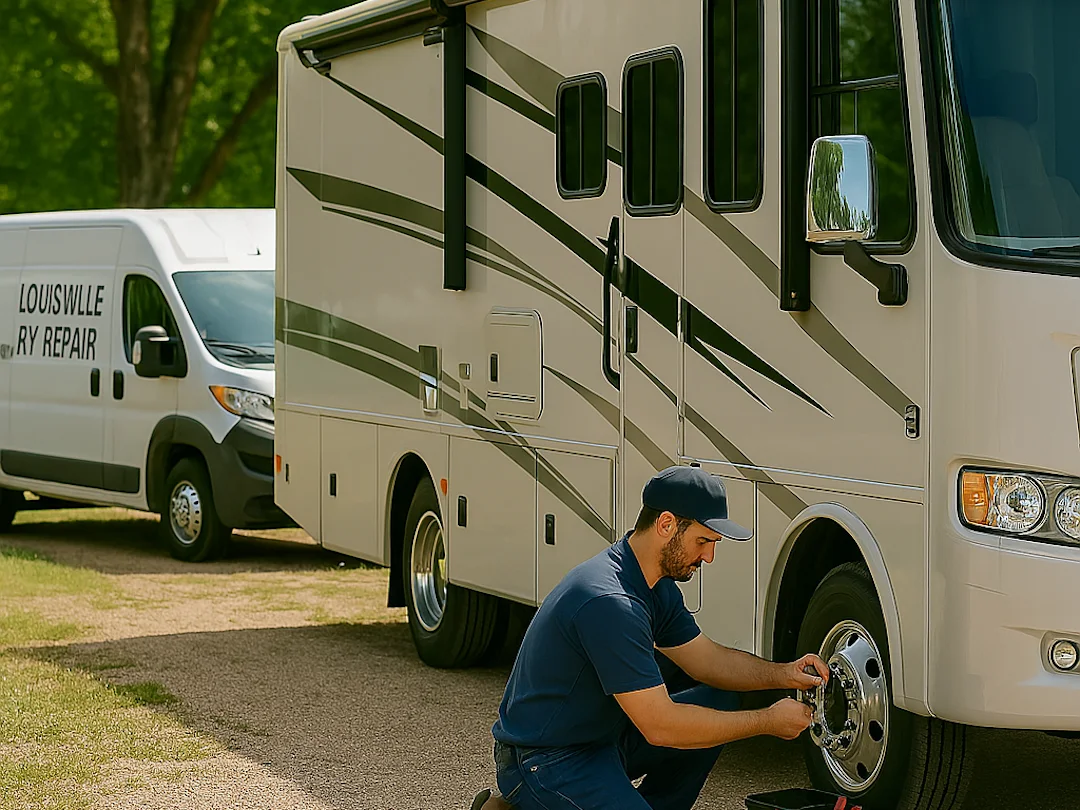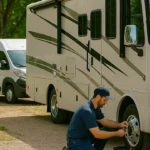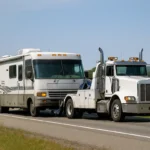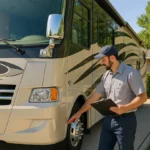Preparing your RV for travel isn’t just about packing your bags and loading the fridge. A proper pre-trip inspection can prevent breakdowns, leaks, power failures, and safety risks. Many RV owners make the mistake of skipping critical checks before they hit the road. This oversight can lead to costly repairs, travel delays, or even accidents.
RV repair pros—especially mobile techs—see it all. From cracked roof seals to fried electrical panels, many of the problems they fix could have been avoided with a solid walk-through and pre-departure routine. Here’s how to prepare your RV for the road and the mistakes you absolutely want to avoid.
| Checklist Item | Common Mistake | Recommended Action |
|---|---|---|
| Tire Condition | Only checking pressure, not age or cracks | Inspect treads, sidewalls, and date codes |
| Battery Health | Assuming it’s charged without testing | Use a voltmeter or have it tested |
| Water System | Forgetting to sanitize or check for leaks | Flush and inspect for hose and pump damage |
| Roof Seals | Not checking for cracks or soft spots | Inspect all seams and vents for wear |
| Electrical Connections | Plugging in without inspecting shore cords | Check plugs for corrosion or fraying |
| Lights & Signals | Only testing headlights | Test brake lights, blinkers, and running lights |
| Slide-Outs & Awnings | Not cycling them before travel | Open and close fully to check function |
| Propane System | Skipping leak tests or regulator checks | Check all fittings and run a sniff test |
| Interior Securing | Leaving loose items that can fall | Secure all appliances, doors, and cabinets |
| Emergency Gear | Forgetting fire extinguisher, first-aid, etc. | Double check expiration dates and restock |
Don’t Skip the Tires—Even If They “Look Fine”
Tires age out long before they wear out, especially in storage. Dry rot and UV damage may not be obvious until a blowout occurs. Check the date code on each tire’s sidewall. If they’re over 5 years old, replacement is a good idea—even with full tread.
Also, make sure your spare is inflated and accessible. Many roadside delays happen because the spare isn’t usable.
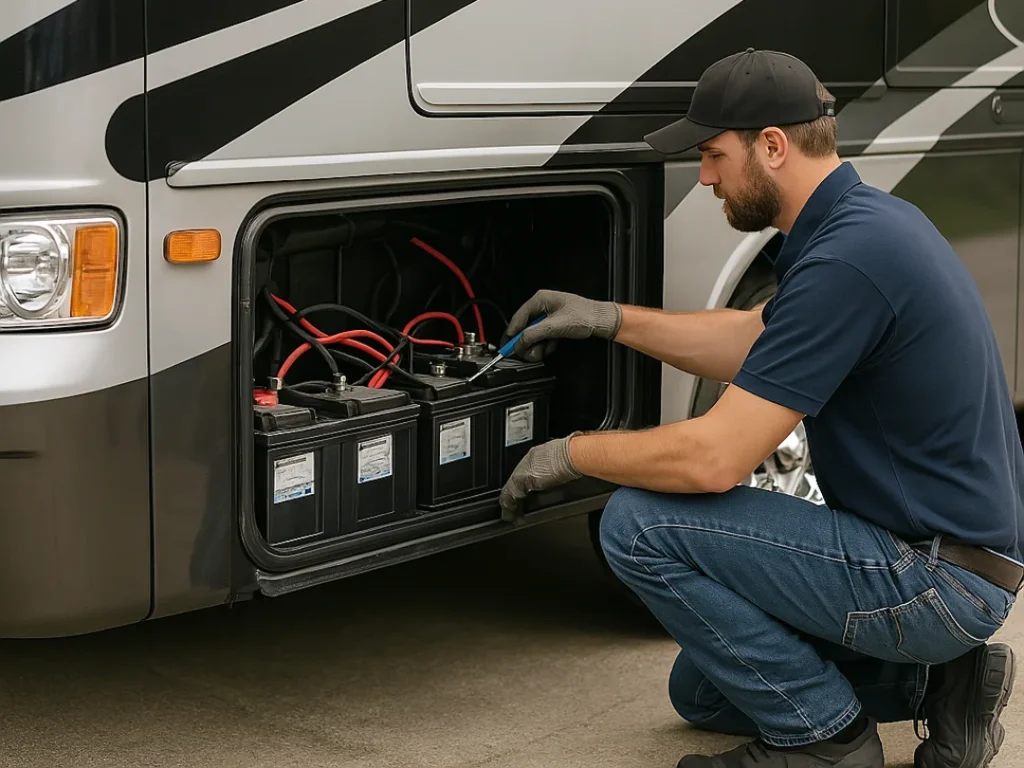
Your Battery Might Be Charged, But Is It Healthy?
A charged battery can still fail. Test with a voltmeter after a full charge. For flooded batteries, check water levels. Ensure terminals are clean and connections are tight. Mobile techs often find corrosion or loose clamps causing power failures on the first night out.
Don’t forget your chassis battery if you’re in a motorhome—it powers more than just the engine.
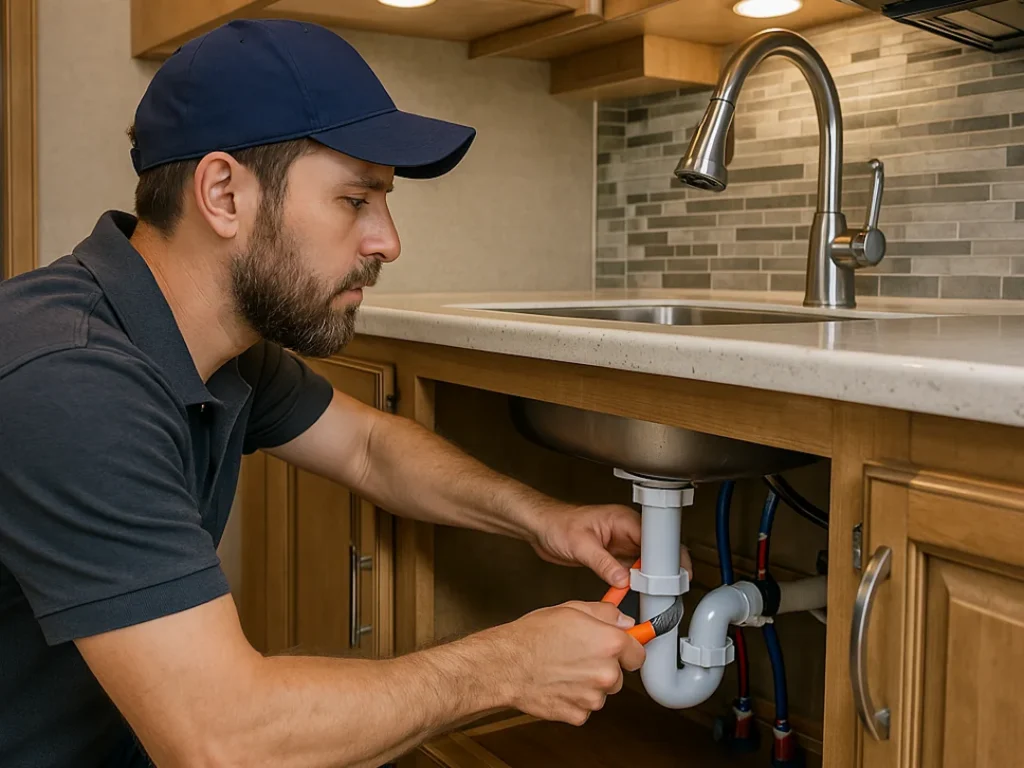
Leaky Plumbing Can Ruin a Weekend
Pressurize your water system before departure. Look underneath cabinets, near water heaters, and at hose fittings. Even slow leaks can lead to floor damage, mold, or freezing risks in cold temps.
Sanitize the fresh water system every season. Don’t rely on campground water quality.
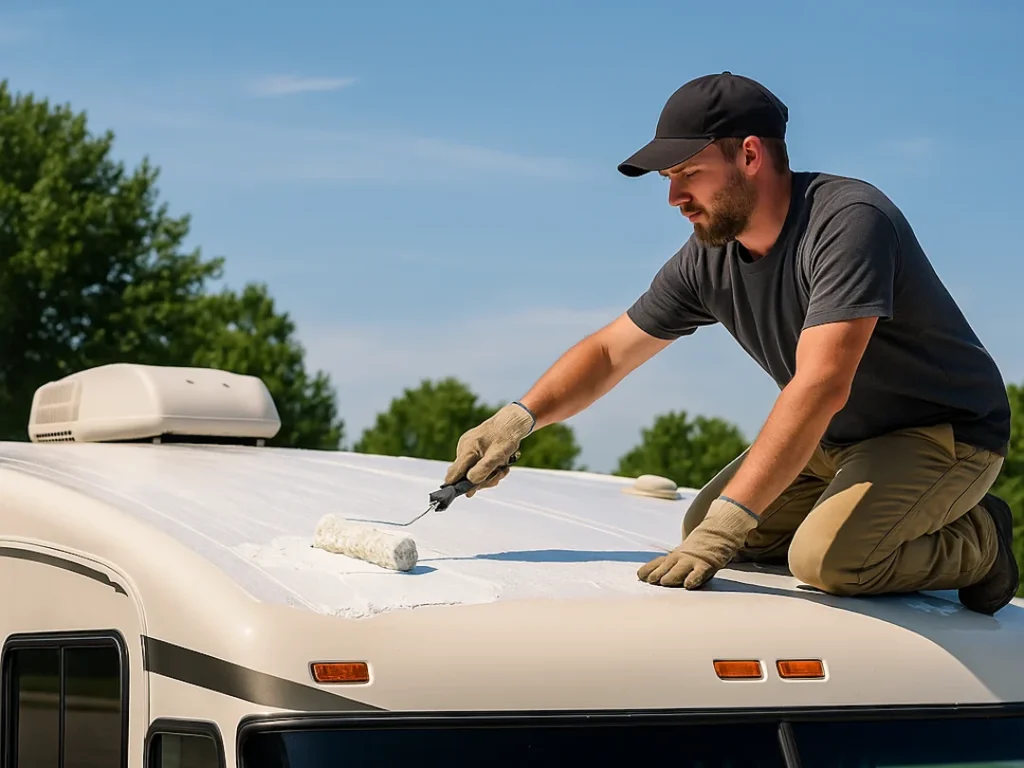
Roof Maintenance Is Not Just for Rainy Days
Tiny cracks around vents or seams on your RV’s roof can let in water during travel. Wind speeds on the highway can drive moisture under loose seals.
Use lap sealant to patch cracks and inspect skylights and air conditioning units. Mobile repair teams see tons of water damage that could have been prevented with roof checks.
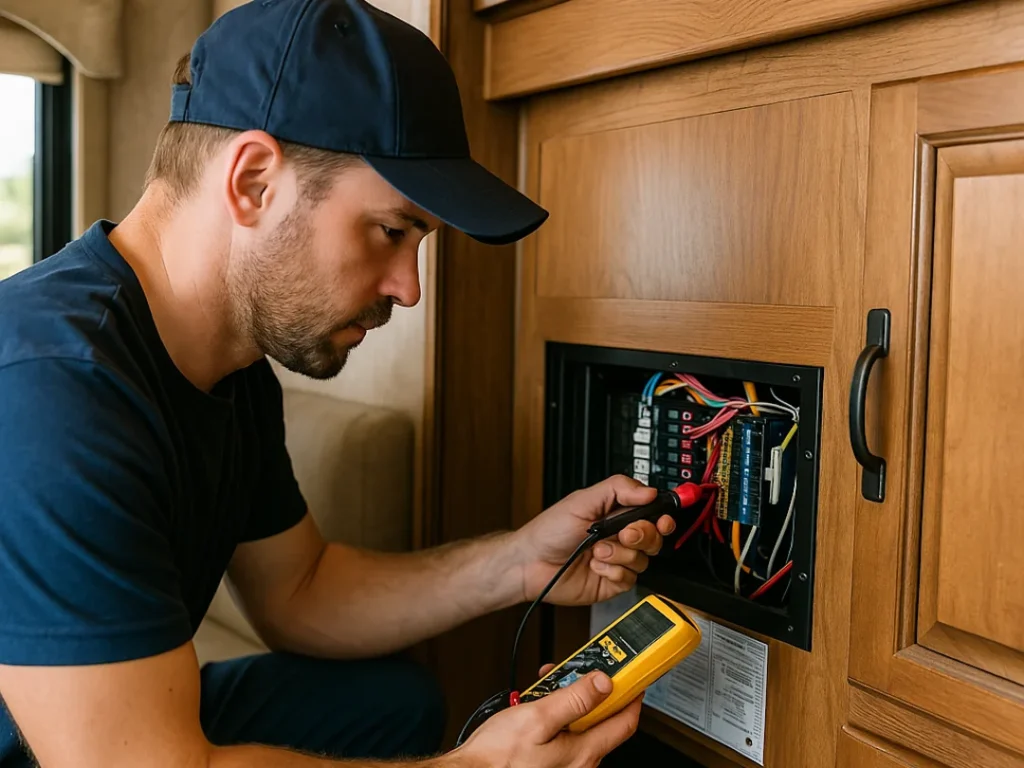
Electrical Surprises Can Get Expensive
Inspect your power cord for cuts, frayed wires, and worn prongs. Look inside the electrical bay for signs of heat or discoloration. Don’t plug into campground power without testing the pedestal.
A surge protector is a must-have, and worth every penny.
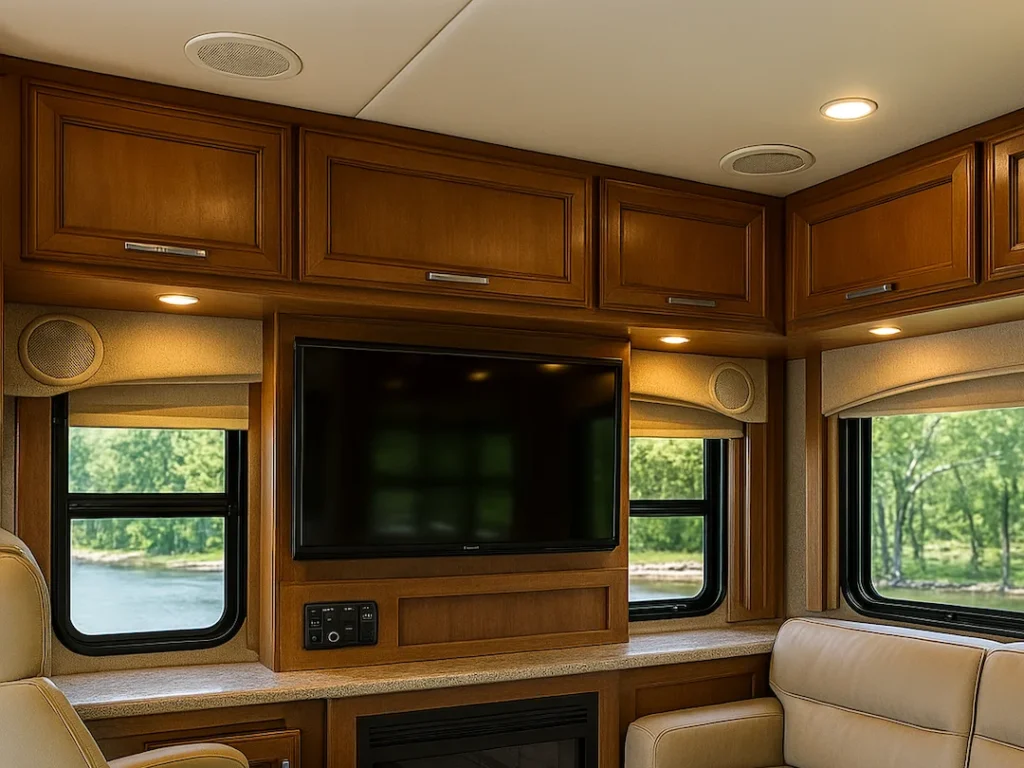
Interior Prep: Keep Things in Place
Loose items become projectiles on the road. Bungee or Velcro loose furniture, store breakables, and latch all cabinets. Mobile techs report frequent calls for broken microwaves and shattered cabinet doors.
Also, check that slides retract fully and seals don’t bind.

Propane: A Powerful (and Dangerous) System
Leaks can happen at any connection point. Do a sniff test at all fittings and valves. If your regulator is more than 10 years old, consider replacing it.
Keep sensors for carbon monoxide and propane fresh and test them often.
Most Common Last-Minute Issues Seen by Mobile Techs
Some of the most common issues we see are:
- Dead batteries (especially in storage)
- Power not reaching slide-outs
- Roof leaks discovered after a storm
- Awnings that won’t extend at the campsite
- Burned-out trailer brake lights
- Loose cabinet doors or floor tiles
- Broken furnace igniters in cold weather
Bonus: Quick Pre-Trip Essentials to Check
- Check tire pressure and inflate to spec
- Inspect undercarriage for loose wiring or lines
- Fill freshwater and check black/gray tank levels
- Confirm tow connections and brake controllers
- Verify registration, insurance, and roadside assistance info
Ready to Roll? Don’t Wait Until It’s Too Late.
Before your next trip, schedule a mobile RV inspection or maintenance service with Louisville RV Repair. We’ll come to you so you can hit the road with confidence. Visit our appointment scheduling page to secure your time today!
